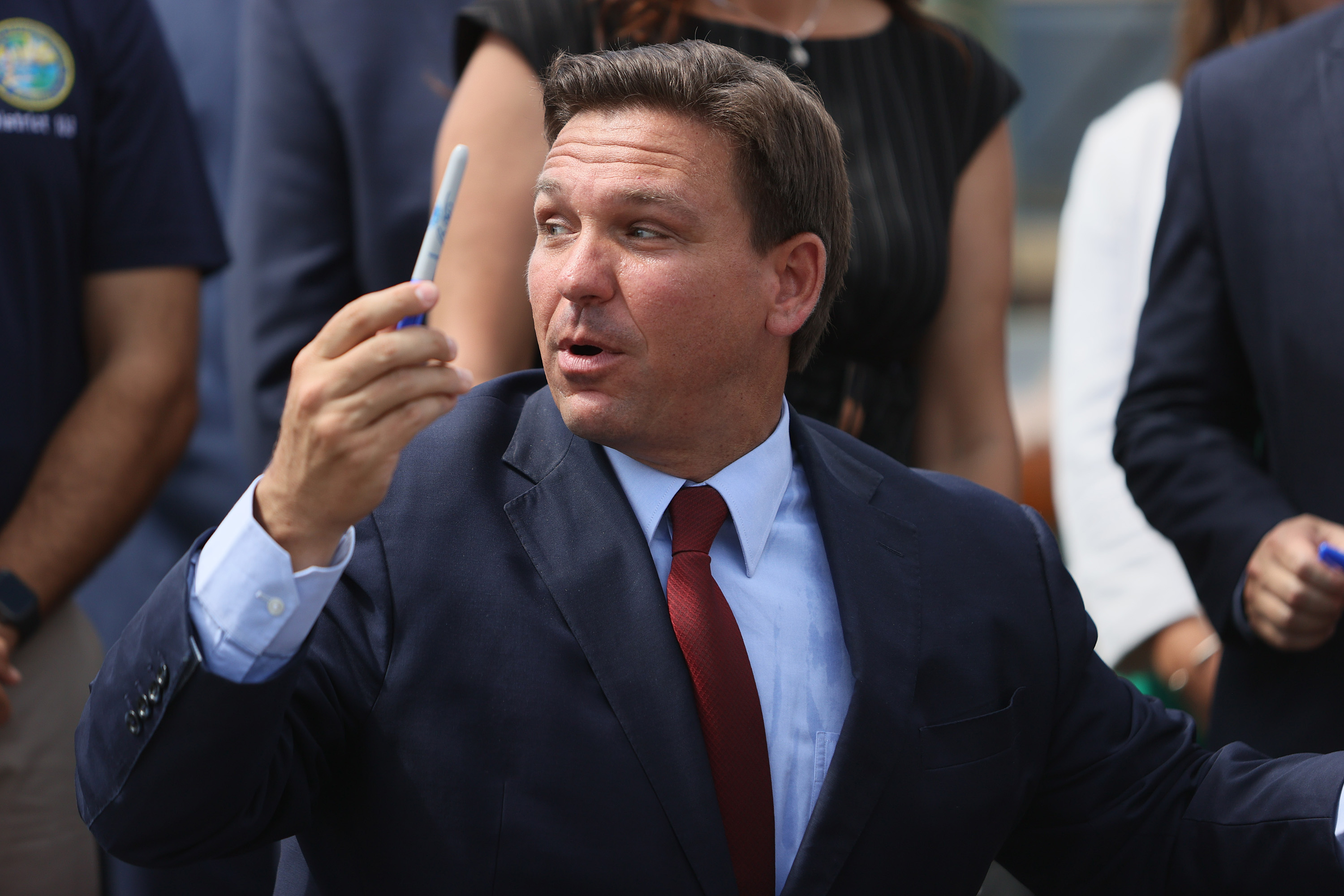Public Perception of DeSantis’ Vetoes

Desantis vetoes – Public opinion on DeSantis’ vetoes has been mixed, with some polls showing a majority of Floridians supporting his decisions and others showing a majority opposed. A recent poll by the University of North Florida found that 52% of Floridians approve of DeSantis’ vetoes, while 48% disapprove. The poll also found that Republicans are more likely to support DeSantis’ vetoes than Democrats, with 72% of Republicans approving and only 28% of Democrats approving.
Key Demographic Groups
The poll also found that there are some key demographic groups that are more likely to support or oppose DeSantis’ vetoes. For example, white voters are more likely to support DeSantis’ vetoes than black voters, with 60% of white voters approving and only 30% of black voters approving. Additionally, older voters are more likely to support DeSantis’ vetoes than younger voters, with 65% of voters over the age of 65 approving and only 35% of voters under the age of 30 approving.
Potential Impact on DeSantis’ Future Political Aspirations
The public’s perception of DeSantis’ vetoes could have a significant impact on his future political aspirations. If DeSantis is able to maintain a high level of support for his vetoes, it could help him to win re-election in 2022 and could also position him as a strong candidate for president in 2024. However, if public opinion turns against DeSantis’ vetoes, it could damage his chances of winning re-election and could also make it more difficult for him to win the presidency in 2024.
Legal Challenges to DeSantis’ Vetoes: Desantis Vetoes

Several legal challenges have been filed against Governor DeSantis’ vetoes, arguing that they are unconstitutional. The plaintiffs in these cases argue that the governor has overstepped his authority by vetoing bills that were passed by the legislature with overwhelming support. They also argue that the governor’s vetoes are based on political considerations rather than legal ones.
The state of Florida has defended the governor’s vetoes, arguing that he has the authority to veto any bill that he believes is unconstitutional or unwise. The state also argues that the governor’s vetoes are based on sound legal principles and that he has not overstepped his authority.
The outcome of these legal challenges is uncertain. However, if the courts were to rule in favor of the plaintiffs, it could limit the governor’s veto power in the future.
Arguments Against DeSantis’ Vetoes, Desantis vetoes
The plaintiffs in the legal challenges against DeSantis’ vetoes argue that the governor has overstepped his authority by vetoing bills that were passed by the legislature with overwhelming support. They also argue that the governor’s vetoes are based on political considerations rather than legal ones.
For example, one of the bills that DeSantis vetoed would have created a new state agency to oversee elections. The bill was passed by the legislature with a bipartisan majority, but DeSantis vetoed it, arguing that it was unnecessary and would create a new bureaucracy.
The plaintiffs in the lawsuit against this veto argue that DeSantis’ veto was based on political considerations rather than legal ones. They point out that DeSantis has made false claims about the bill, and that he has a history of vetoing bills that are supported by the majority of Floridians.
Arguments in Favor of DeSantis’ Vetoes
The state of Florida has defended the governor’s vetoes, arguing that he has the authority to veto any bill that he believes is unconstitutional or unwise. The state also argues that the governor’s vetoes are based on sound legal principles and that he has not overstepped his authority.
For example, in the case of the bill that would have created a new state agency to oversee elections, the state argues that DeSantis’ veto was justified because the bill was unconstitutional. The state argues that the bill would have violated the separation of powers between the executive and legislative branches of government.
The state also argues that DeSantis’ vetoes are based on sound legal principles. The state points out that DeSantis has a history of vetoing bills that he believes are unconstitutional or unwise, and that he has never been successfully challenged in court.
Potential Outcomes of the Legal Challenges
The outcome of the legal challenges against DeSantis’ vetoes is uncertain. However, if the courts were to rule in favor of the plaintiffs, it could limit the governor’s veto power in the future.
For example, if the courts were to rule that DeSantis’ veto of the bill that would have created a new state agency to oversee elections was unconstitutional, it would set a precedent that could make it more difficult for future governors to veto bills that are passed by the legislature with overwhelming support.
The outcome of the legal challenges could also have implications for the future of gubernatorial veto power in Florida. If the courts were to rule in favor of the plaintiffs, it could lead to a decrease in the governor’s veto power. However, if the courts were to rule in favor of the state, it could strengthen the governor’s veto power.
Governor DeSantis’ recent vetoes have sparked controversy, raising concerns about their impact on public health. While the debate rages on, it’s crucial to stay informed about the evolving COVID-19 variants and their potential symptoms. By understanding these symptoms, we can better protect ourselves and our loved ones from the ongoing pandemic.
DeSantis’ vetoes, however, may hinder access to critical information and resources that could aid in this effort.
Desantis vetoes have sparked controversy, with many criticizing his decisions. Tyler Cherry , a renowned political analyst, has expressed concerns about the potential impact of these vetoes on the state’s education system. Despite the ongoing debate, Desantis remains firm in his stance, emphasizing the need for fiscal responsibility and parental choice in education.